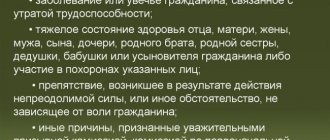Structure and content of the prosecutor's speech
The participation of the public prosecutor, and in criminal cases of private prosecution, the participation of a private prosecutor in judicial debates is mandatory. The prosecutor's speech can be of two types: accusatory or consist of a justified refusal of the accusation in whole or in a certain part. The choice of type is determined by the consideration of the criminal case on its merits and the results of the judicial investigation. The criminal procedural legislation does not contain specific instructions on how the prosecutor’s speech should be structured and what parts it should consist of. Despite this, when speaking in the debate, the prosecutor must express and justify his position on issues that, according to Art. 299 of the Code of Criminal Procedure of the Russian Federation are subject to resolution by the court when rendering a sentence.
The subject of the prosecutor's judicial speech is its content, which includes factual and legal data that are inextricably linked with each other and form a unity, limited by the limits of the trial in accordance with the charge brought against the defendant, an assessment of the public danger of the crime and the resulting legal consequences for society, the state or a specific victim , assessment of the personality of the defendant, and, if necessary, the victim, analyzes the causes and conditions that contributed to the commission of the crime. The conclusion of the prosecutor's indictment is a conclusion about the proof or unprovenness of the charge against the defendant with a proposal to find him guilty or not guilty of committing a crime (indicating the point, part, article of the Criminal Code of the Russian Federation for each point of the charge), about the qualification of the crime, about the type and amount of punishment or about release from punishment, about the fate of a civil claim, if one has been filed. If the charge brought against the defendant has not been confirmed and there are grounds for changing it, then the public prosecutor is obliged to change the charge towards mitigation and justify such a need.
In accordance with Part 8 of Art. 246 of the Code of Criminal Procedure of the Russian Federation, the state prosecutor has the right:
a) exclude from the legal qualification of the act the signs of a crime that aggravate the punishment;
b) exclude from the wording of the charge brought under several provisions of the Criminal Code of the Russian Federation, references to one or more of them;
c) reclassify the act in accordance with the norm of the Criminal Code of the Russian Federation, providing for a more lenient punishment.
If the public (private) prosecutor comes to the conclusion that the defendant’s guilt in the crime charged has not been proven in court proceedings, then he is obliged to drop the charges. The prosecutor's refusal to charge does not mean that he can refuse to participate in the judicial debate. The peculiarity of the prosecutor's speech in this case lies in the substantiation of his conclusion about the innocence of the defendant and the request for his acquittal.
Defense speech of a lawyer
The lawyer speaking at the debate makes a speech called a “defensive speech.” This is a type of judicial speech. According to the definition of T.L. Zhivulina and S.V. Travina “a judicial speech is a public speech, which is a statement of the speaker’s conclusions on a specific case and his objections to the opponent” [2].
In each individual case, the content of the lawyer’s speech is determined by the specific tasks of the defense in the case, which, in turn, are determined by the nature of the crime and other features of the case, as well as the collected evidence. But regardless of the circumstances of the case, each speech of the defense attorney includes certain components such as:
And if the information posted on our website was useful to you, please share it on social networks.
Structure and content of the defender’s speech
The speech of the defense attorney in court debates is an important point in the activities of the defense attorney in connection with the considered criminal case to protect the rights and interests of his client. If several defense attorneys participate in a criminal case, the sequence of their presentations is determined by the court, taking into account their opinions. The volume and content of the speech are determined independently by the defense attorney participating in the judicial debate.
In legal practice, there are three main defensive positions that determine the content, structure and volume of the defense lawyer’s speech.
First position
- about mitigation of punishment. As a rule, a defense lawyer takes this position when he and his client have no dispute either with the evidence of the accusation or with the qualification of the crime. In his speech in this case, the defense attorney focuses on the characteristics of the defendant, mitigating circumstances, causes and conditions that contributed to the crime, and also assesses the personality and behavior of the victim. At the conclusion of the speech, the defense attorney must accurately formulate his appeal to the court with a request, for example, to impose a sentence not related to imprisonment; on the application of a suspended sentence to the defendant; take into account the mitigating circumstances cited by the defense attorney when assigning punishment; render a guilty verdict without imposing punishment.
Second position
- on reclassification of the act. This position is chosen in cases where the accused admits the event of a crime and his participation in it, but his act, in the opinion of the defense lawyer, is either incorrectly classified according to the Criminal Code of the Russian Federation, or certain qualifying circumstances should be excluded from the charge, or the act falls under a newly introduced norm of the Criminal Code RF, whose sanction is softer than the previous one. With this position, the main attention in the speech of the defense attorney should be given to the analysis of evidence indicating the need for retraining, then to the characteristics of the defendant’s personality, mitigating circumstances, etc. In accordance with this, the defense lawyer formulates a request to the court to reclassify the act to the appropriate norm of the Criminal Code of the Russian Federation and impose punishment.
Third position
- about the acquittal of the defendant. The defense lawyer must formulate a corresponding request before the court if the event of a crime has not been established (clause 1, part 1, article 24 and clause 1, part 2, article 302 of the Code of Criminal Procedure of the Russian Federation), and there are no signs of a crime in the act (clause 2, part 1 Art. 24 and paragraph 3, part 2, article 302 of the Code of Criminal Procedure of the Russian Federation), it has been proven that the defendant is not involved in the commission of a crime (paragraph 2, part 2, article 302 of the Code of Criminal Procedure of the Russian Federation). Based on lawyer's ethics, a lawyer, when carrying out a defense, must follow the position of the defendant, independently choosing the means and tactics of defense. However, if the defense lawyer comes to the conclusion that the defendant’s admission of guilt is self-incrimination, he is obliged to ask the court to acquit the defendant. A defense speech should consist of refuting the prosecution's arguments and confirming the defense's position. Based on the circumstances of the criminal case, if there are grounds provided for in the law, the defense attorney is obliged to ask the court: to terminate the criminal case and (or) criminal prosecution (Article 254 of the Code of Criminal Procedure of the Russian Federation); on passing a sentence with release from serving the sentence (clause 2, part 5, part 6 and part 8 of article 302 of the Code of Criminal Procedure of the Russian Federation); on the pronouncement of a conviction and release from serving it with the application of educational measures to the minor (Article 92 of the Criminal Code of the Russian Federation and Article 432 of the Criminal Procedure Code of the Russian Federation); declare the defendant insane or mentally ill after committing a crime and apply compulsory medical measures to him (Articles 21, 81 of the Criminal Code of the Russian Federation).
Do no harm: top phrases that a lawyer should not say in court
× In a trial, you should not read the text of the speech from the page: “The economic court (judge such and such) is considering a case (number such and such) on the claim of LLC “A” (hereinafter - the plaintiff) against LLC “B” (hereinafter - defendant)..."
It is boring, looks extremely unconvincing, wastes the judge’s procedural time and is therefore perceived negatively. It is important to learn to speak concisely, simply and clearly.
+ It is better to exclude rhetorical questions, philosophical reflections and references to the masters of the doctrine of law from the speech.
There is no need to turn a court hearing into a theatrical performance. As a rule, judges perceive this negatively. If you have something to say, you should clearly and consistently present the main arguments, without going beyond the scope of the matter.
If a lawyer quotes Shakespeare and Machiavelli in a court hearing, it looks unprofessional and is perceived as a lack of a clear and strong position.
O.Yu. Nikolaev
partner of the Law Office "VMP Vlasova, Mikhel and Partners"
× “The opponent’s actions are contrary to the Constitution”
The Constitution does not regulate the procedure for specific actions of citizens or business entities. Therefore, references to the principles enshrined in the Constitution are not taken seriously.
+ “The opponent’s actions contradict such-and-such an article of such-and-such a normative legal act” (indicate a specific norm)
Indication of a specific violation with reference to the norm looks more convincing than general phrases and can form the basis for a court decision.
V.M. Angelic
Candidate of Legal Sciences, lawyer at the Law Firm "Braginets and Partners"
× “Please take into account when making a decision that another judge in a similar case agreed with me and satisfied the claims”
In a pending case, the opinion of another judge has no significance. Otherwise, the provisions of Art. 108 COD criteria of relevance, admissibility and reliability.
+ “High Court, I know that we do not have case law, but such and such a court, under similar circumstances, made such and such a decision. I believe that judicial practice should still be uniform."
In this case, it would be correct to briefly describe the previous circumstances and present the decision for review or inclusion in the case.
The court decision is made in the name of the Republic of Belarus. Therefore, it is not entirely correct to refer to the opinion of a specific judge, although the decision is signed by a specific individual.
At the same time, the uniformity of judicial practice is of great importance for the legal system. Therefore, at the stage of judicial debate, justified references to court decisions with similar circumstances are quite appropriate.
D.V. Laevsky
lawyer of the Minsk City Bar Association
× You should not utter phrases like “It is already clear what decision will be made in the case”, “If the court intends to be guided by the law, then it must decide on...”, “If a decision is made on... we will appeal it”
It is hardly reasonable to tell a court that its decision is obvious, predictable, expected or known in advance, even if the court appears to be biased. It is equally short-sighted to demonstrate that a party is already preparing to appeal a decision that has not yet been announced. Such statements have the opposite effect, because they actually publicly question the impartiality and objectivity of the court.
Remember that there are cases in which the court can really have doubts throughout the entire process, especially if such disputes or circumstances have not been encountered in judicial practice. Therefore, there is always a possibility that the court’s opinion will change at the last moment.
+ You should speak at the meeting not about the future conclusions of the court and not about what you intend to do if you disagree with these conclusions, but about how justified and legal the party’s arguments are, i.e. yours or your opponent's.
In attempts to anticipate or predetermine the court's conclusions, you can make mistakes in forecasts and cause negativity towards yourself and, as a result, towards the client. The same applies to cases when a participant in the process tries to verbally force the court to make a certain decision. Such tactics are initially unsuccessful. It would be more effective to present in writing clear evidence of the inconsistency of the opponent’s arguments, not forgetting about the subject matter and the distribution of the burden of proof. Then the court will be able to use your arguments in its decision.
Replica
After speeches have been made by all participants in the debate of the parties, each of them can speak one more time with a remark (Part 6 of Article 292 of the Code of Criminal Procedure of the Russian Federation). Replica
— a remark or objection from a participant in the debate regarding what was said in the speeches of other participants (clause 36 of Article 5 of the Code of Criminal Procedure of the Russian Federation).
As a rule, the content of a remark is a short statement in the form of an objection addressed to a participant on the other side regarding his position on the case. The criminal procedural legislation of Russia does not provide for the mandatory participation of any of the participants in the debate with a rejoinder. This is the exclusive right of the participant who made a speech in the judicial debate, therefore the court, after all participants in the debate have delivered their speech, must find out about their desire to exercise the right of rejoinder. The sequence of speech is determined by the court, taking into account the opinions of the participants, or by the participants themselves. But in accordance with Part 6 of Art. 292 of the Code of Criminal Procedure of the Russian Federation, the right of the last remark belongs to the defendant or his defense attorney. Each participant in the debate may speak only once.




